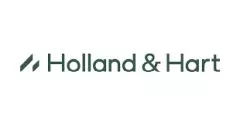- within International Law topic(s)
- with Finance and Tax Executives
- in United States
- with readers working within the Technology industries
On September 30, 2025, the Bureau of Industry and Security ("BIS") published an Interim Final Rule ("IFR") entitled "Expansion of End-User Controls To Cover Affiliates of Certain Listed Entities." This rule expands end-user controls to cover affiliates of certain listed entities and is effective as of September 29, 2025. Also termed the "Affiliates Rule," BIS has essentially adopted the Treasury Department's Office of Foreign Assets Control ("OFAC") 50% ownership standard for export control purposes. BIS also updated its "Entity List FAQs," dated September 29, 2025, to provide further clarification.
1. 50% Rule or "Affiliates Rule" Scope and Summary
The new rule applies to:
- Entity List entities (supplement no. 4 to part 744 of the EAR)
- Military End-User ("MEU") List entities (supplement no. 7 to part 744 of the EAR)
- Certain Specially Designated National ("SDN") designations under § 744.8(a)(1)
Any foreign entity owned 50% or more (directly or indirectly, individually or in aggregate) by one or more entities on the Entity List, MEU List, or certain SDN designations will automatically be subject to the same restrictions as the listed parent entity. Like OFAC's 50% Rule, the new BIS rule applies only to SDN ownership, not control, and it is a "downward" rule, meaning restrictions flow down from a listed party, not "upward" to the owners of listed entities. Prior to this rule, BIS employed a "legally distinct" standard whereby the licensing requirements and restrictions did not extend to legally distinct foreign affiliates.
2. Key Takeaways
- Rule of Most Restrictiveness. When an entity is owned by multiple listed parties with different restrictions, the most restrictive list requirements apply.
- Due Diligence Expansion. Companies must now research and verify ownership structures of foreign counterparties to determine if they are owned 50%+ by listed entities.
- New Red Flag / Affirmative Duty Created. The IFR adds a new "Red Flag 29" to supplement no. 3 to part 732 specifying that "exporters, reexporters, or transferors have an affirmative duty to determine the percentage of ownership of those listed entities and if that is not possible, to obtain a license from BIS if required under the Entity List or MEU List..."
- Temporary General License (TGL). Provides limited authorization for certain transactions with non-listed affiliates until December 1, 2025.
- Unverified List ("UVL") and parties subject to Denial Orders excluded. Per the IFR, "BIS is not adopting the Affiliates rule at this time for certain other EAR restricted parties list or provisions, specifically, the Unverified List (UVL) in supplement no. 6 to part 744, or the list of parties subject to Denial Orders issued under part 764."
3. Compliance Considerations
- Review and enhance due diligence procedures for ownership verification.
- Consider engaging third-party screening services to perform 50% ownership analysis.
- Prepare for increased licensing requirements and longer transaction timelines.
- Monitor BIS guidance and potential FAQ releases for specific ownership determinations.
This rule represents a significant expansion of U.S. export controls and will require compliance program enhancements for companies dealing with foreign entities. Public comments will be accepted by BIS through October 29, 2025.
Holland & Hart's Export Controls, Economic Sanctions, and Customs team stays abreast of regulatory and policy developments – read more about our services here.
The content of this article is intended to provide a general guide to the subject matter. Specialist advice should be sought about your specific circumstances.



